Responding and Researching

I have been thinking about salt a lot recently. Maybe a strange way to start a blog for the TIHR Archive Project but actually there are many connections between the qualities of salt and the archive.
As an artist I often have the opportunity to put together concepts that at first appear disconnected. Salt and archival practices are a reoccurring feature of Spectral Ecologies, a practice-based research project I am working on that focuses on the Mallee, a geographically and historically complex region of southern Australia. As part of the project, I visited Lake Tyrrell, a salt lake, where I spent time thinking about the relationship between salt and archives, realising that not only are salt and the archive both agents of preservation but they are equally agents of change and transformation…
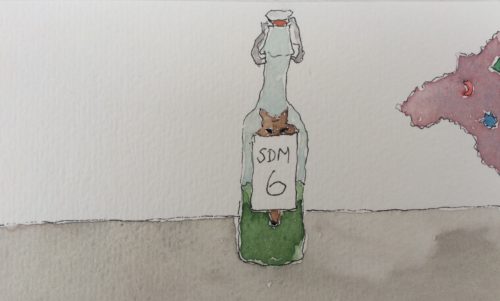
Did you attend any of our social dreaming matrices over the past six weeks, or are you curious to see what we explored in the sessions? If so we invite you to attend a review session on Wednesday 7th September at 3pm in the Wellcome Collection Reading Room. (Please note the original time has changed, the event […]
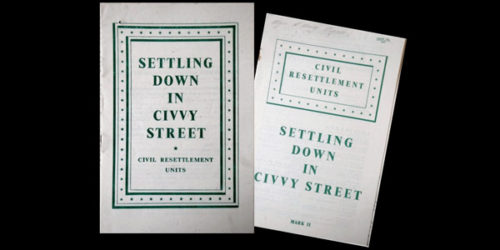
Alice White’s lunchtime talk focuses on what the Tavistock archive restores to our picture of resettlement by providing insight into the people, processes, challenges and opportunities behind the Civil Resettlement Units of the 1940s …
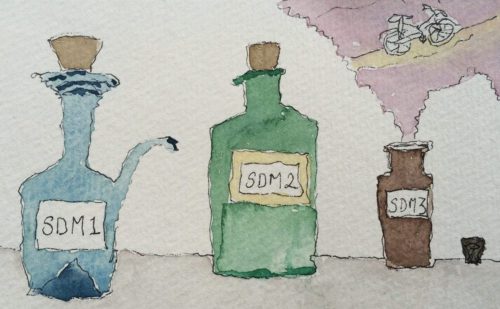
Social Dreaming Matrix #1: Friday 24th June, 2016, 2pm-3.15pm: Wellcome Collection Reading Room Facilitation and write-up: Juliet Scott, Mannie Sher An additional social context was offered for this matrix as it took place the morning after the UK’s referendum on leaving the European Union. Many participants came from the Wellcome Collection States of Mind exhibition. 32 people […]

So here’s the way we do things in the archive world: You have your boxes of papers, all messy and disorganised. Then you try and impose some order on them, trying to make sense of how the records were originally created and maintained. After a well-earned tea break (of course, a safe distance away from the original, unique documents!), you start to organise them into neat and pretty categories and form a lovely tidy hierarchy, which supposedly reflects the structure and organisation of the creating body. Or that’s the theory anyway …

Alice White who has recently completed PhD research using the archive writes.
As the Tavistock Institute of Human Relations’ (TIHR) archives are being catalogued, ready to be opened up to new audiences, I have been thinking a lot about access to knowledge generally, and to knowledge about the TIHR’s history specifically …
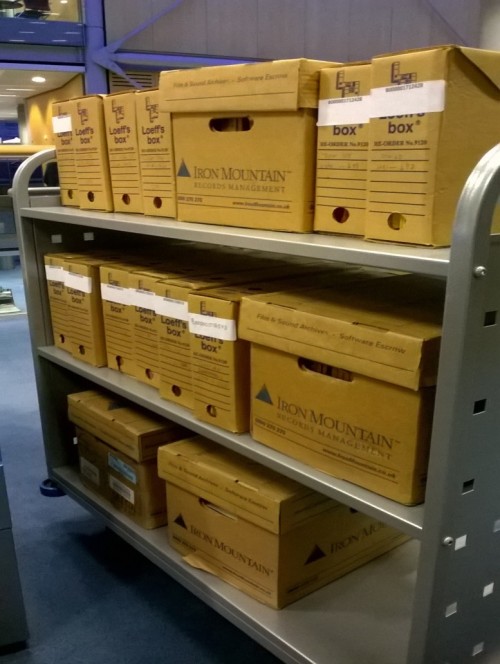
Since starting this project in October, I’ve been thinking about my role as archivist for the Tavistock Institute of Human Relations (TIHR). I’ve been considering what it means to open up a previously inaccessible archive collection, and the dynamics of bringing the collection out of the storage centre and into the light. I’ve also been thinking about what we mean when we talk about archives and institutional memory, and the role that an archive plays in organisational development and as a form of socio-cultural intervention …

Social Dreaming Matrices at the Wellcome Library Reading room – starting Friday 24th June
If dreams are in part the expression of our unconscious, can we work with the archive as the unconscious of organisational life? […]
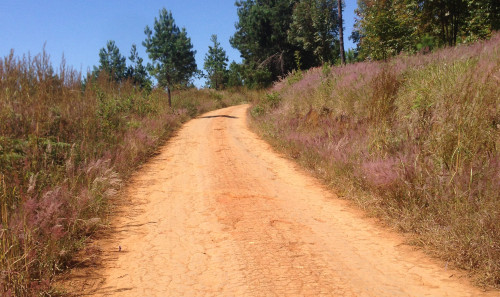
This video is the second record from our series of documenting the beginnings of the archive project. It tells the enthusiastic response from our partners as they comment on the progress of the boxes whilst they were going through the final stage of work before being re homed in the Wellcome Library …

The single most significant development of my relationship with The Tavistock Institute of Human Relations was the discovery of an area of psychological theory known as Object Relations. I don’t know when I first heard the term but it began to mean something for me when I attended a Group Relations Conference in Israel […]








